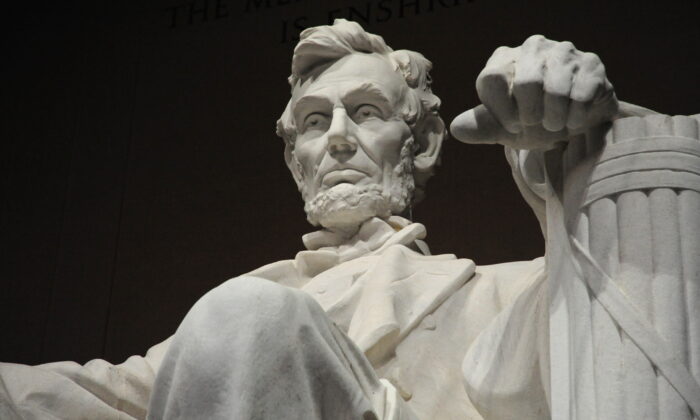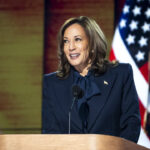Editor’s note: This excerpt is from “A Horse for Mr. Lincoln” by Hon. Preston Manning, a lifelong fan of Lincoln. The book is a work of fiction exploring how events in the US could have been different if Lincoln hadn’t gone to the theatre on April 14, 1865.
After leaving the Presidency, I secured a position with the State Department, arranged by Mr. Lincoln. I left his service in the summer of 1869, knowing that nothing could compare to my time with him.
In the spring of 1873, I received a personal letter from Mr. Lincoln, inviting me to accompany him and Mrs. Lincoln to London for a speech at St. James’s Hall. John Bright, a British statesman and supporter of Mr. Lincoln during the Civil War, had invited him.
We arrived in London for the speech on November 19, 1873, where Mr. Lincoln and John Bright would appear together. The hall was already crowded with people eager to hear them speak.
Among the audience was the London Times correspondent, who had previously dismissed Mr. Lincoln’s Gettysburg Address. Prime Minister William Gladstone was also present, causing a stir among the audience.
Mr. Bright whispered to Mr. Lincoln that Gladstone’s presence was a tribute to him, as Gladstone had previously supported the Southern Confederacy. Despite their differences, Gladstone had come to hear Mr. Lincoln speak.
Mr. Bright then introduced Mr. Lincoln, acknowledging the importance of his Gettysburg Address and its call for government of the people, by the people, and for the people to endure. He asked Mr. Lincoln to advise on how to ensure the continuation of such a government.
“May I introduce to you a remarkable advocate for freedom and democracy, the esteemed former President of the United States, Mr. Abraham Lincoln.”
Approaching the podium, Mr. Lincoln adjusted his steel rimmed spectacles and gazed out at the eager audience, waiting to hear the wisdom of this iconic figure from across the sea.
He began humbly, acknowledging the esteemed speakers who had graced the same podium before him, recognizing his own limitations in comparison. Nevertheless, he vowed to do his best to share his thoughts on the future of democratic government, expressing his belief in its enduring strength.
Focusing on “the democracy story,” Mr. Lincoln delved into the historical roots of democracy, tracing its origins back to ancient Greece where the flame of democracy was first ignited by settlers on the frontier. Drawing parallels to his own upbringing in frontier communities, he emphasized the importance of independence and equality in fostering democratic ideals.
However, Mr. Lincoln did not shy away from acknowledging the challenges faced by democracy, pointing out its enemies who sought to undermine freedom and equality. Reflecting on the dark chapters of history, he highlighted the struggles against oppression and tyranny that threatened the democratic flame.
Transitioning from storytelling to a courtroom-style presentation, Mr. Lincoln passionately argued for the defense of democracy, citing the abolition of slavery as a pivotal moment in both British and American history. He commended Britain’s successful efforts to eradicate slavery through democratic processes, contrasting it with the tumultuous path taken by America, culminating in a devastating civil war.
In conclusion, Mr. Lincoln expressed gratitude for the enduring spirit of democracy that had prevailed through trials and tribulations, emphasizing the vital role of the common people in upholding its principles. His powerful words resonated with the audience, leaving a lasting impression of the importance of preserving and promoting democracy for future generations. During the Civil War, many democratic rights and freedoms were suspended, but by the grace of God, democracy in America was preserved. President Lincoln believed that war was a necessary evil to combat the oppression of freedom and equality for African Americans and to preserve the Union. However, he wished that slavery could have been abolished through democratic means rather than through force.
In a speech praising British democracy for abolishing slavery without war, Lincoln emphasized the importance of democracy in eradicating social and political evils. His words were met with thunderous applause, demonstrating the audience’s support for his message. Even Mr. Gladstone, a prominent figure, joined in the ovation for Lincoln and British democracy.
Months later, Lincoln’s wife, Mary Todd Lincoln, passed away, followed by Lincoln himself the next year. His funeral procession, led by his beloved horse High Ground, was a solemn and poignant tribute to the fallen leader. As High Ground accompanied Lincoln on his final journey, the crowds paid their respects in silence, honoring the man who had guided the nation through its darkest days. My gaze remained fixed in one direction, and there they stood, united at the outskirts of the gathering—three cavalry soldiers clad in blue uniforms.
The one in the center, who had initiated the whistle, was a towering figure with a thick beard and dark, curly hair peeking out from beneath his cavalry Stetson. They waved enthusiastically, and the giant, sporting a wide grin, offered me a leisurely salute.
I blinked and briefly glanced back at High Ground. Upon returning my focus to the crowd, the trio of troopers had mysteriously disappeared.
Please note that the opinions shared in this article are solely those of the author and do not necessarily align with the perspectives of The Epoch Times.
Source link





